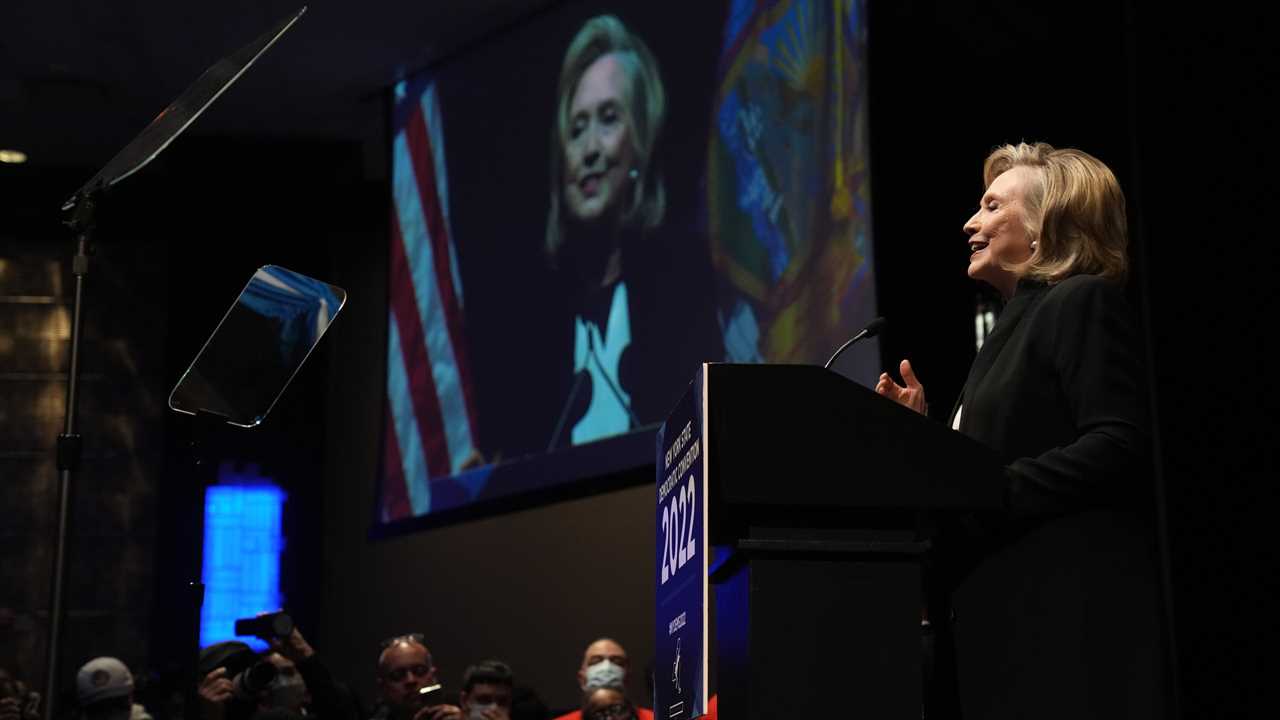
WASHINGTON — Hillary Clinton’s 2016 presidential campaign and the Democratic Party have agreed to pay $113,000 in fines to settle a Federal Election Commission investigation into whether they violated a campaign finance disclosure law when they funded an opposition research effort into Donald J. Trump and Russia that resulted in a discredited document known as the Steele dossier.During the 2016 race, the Clinton campaign and the Democratic National Committee retained a law firm, Perkins Coie, which in turn hired a research group, Fusion GPS, that commissioned what became the dossier. In campaign spending disclosures, the campaign and the party said their payments to Perkins Coie were for legal services, not opposition research.Dan Backer, a conservative lawyer, filed a complaint with the Federal Election Commission on behalf of a group he leads, the Coolidge Reagan Foundation. It accused the Clinton campaign and the Democratic Party of illegally hiding that they had been funding an opposition research effort.The commission has not yet made public the findings of its investigation. But the agency sent a letter about the inquiry and its resolution to Mr. Backer on Tuesday, which he posted on his group’s website. The letter said the commission agreed that the campaign and the party had probably violated campaign finance law.“We’re thrilled to have caused some modicum of accountability against Hillary Clinton and the Democratic National Committee,” Mr. Backer said, arguing that the dossier had damaged American democracy. He added, “It’s not enough and it should be more.”Graham Wilson, a lawyer representing both the campaign and the party in the matter, did not respond to a request for comment. But Daniel Wessel, a Democratic National Committee spokesman, said in a statement, “We settled aging and silly complaints from the 2016 election about ‘purpose descriptions’ in our F.E.C. report.”So-called conciliation agreements attached to the letter sent to Mr. Backer showed that the campaign and the party disagreed that they had inaccurately described the purpose of their spending. They argued that the research Perkins Coie had commissioned was part of the legal services the law firm provided, including “in anticipation of litigation.”Nevertheless, the documents said, the campaign and the party agreed in February to pay civil penalties totaling $113,000 — $8,000 from the campaign and $105,000 from the party — to resolve the matter “expeditiously and to avoid further legal costs.” The agreements said the campaign and the party did not concede that the Federal Election Commission was correct that they probably violated campaign finance law but “will not further contest” that finding either.The commission documents said Perkins Coie — where a partner at the time, Marc Elias, was representing the Clinton campaign — paid Fusion GPS slightly more than $1 million in 2016, and the law firm was in turn paid $175,000 by the campaign and about $850,000 by the party during six weeks in July and August 2016. Campaign spending disclosure reports described most of those payments to Perkins Coie as having been for “legal services” and “legal and compliance consulting.”The Washington Examiner earlier reported on the commission’s letter to Mr. Backer.The Steele dossier was a set of reports written by Christopher Steele, a former British intelligence agent whose research firm was a subcontractor that Fusion GPS hired to look into Mr. Trump’s purported links to Russia. The reports cited unnamed sources who claimed that there was a “well-developed conspiracy of coordination” between the Trump campaign and Russia and that Russia had a blackmail tape of Mr. Trump with prostitutes.In addition to giving his reports to Perkins Coie, Mr. Steele shared some with the F.B.I. and reporters. The F.B.I. — which had opened its investigation into Russia’s election interference operation and links to the Trump campaign on other grounds — used part of the dossier in applications to wiretap a Trump associate. BuzzFeed published the dossier in January 2017, heightening suspicion about Mr. Trump and Russia.It has become clear that the dossier’s sourcing was thin. No corroborating evidence emerged in the intervening years to support many of its claims, such as the purported sex tape, and investigators determined that one key allegation — that a lawyer for Mr. Trump, Michael D. Cohen, had met with Russian officials in Prague during the campaign — was false.The primary source of information in the dossier was Igor Danchenko, a researcher hired by Mr. Steele to canvass for information about Mr. Trump and Russia from people he knew, including in Europe and Russia.Mr. Danchenko told the F.B.I. in 2017 that he thought the tenor ofBy: Charlie Savage
Title: Democrats Agree to Pay $113,000 to Settle Campaign Spending Inquiry
Sourced From: www.nytimes.com/2022/03/30/us/politics/hillary-clinton-democrats-campaign-spending.html
Published Date: Wed, 30 Mar 2022 22:55:33 +0000
Read More
 UK PoliticsWorld PoliticsVideosPrivacy PolicyTerms And Conditions
UK PoliticsWorld PoliticsVideosPrivacy PolicyTerms And Conditions
